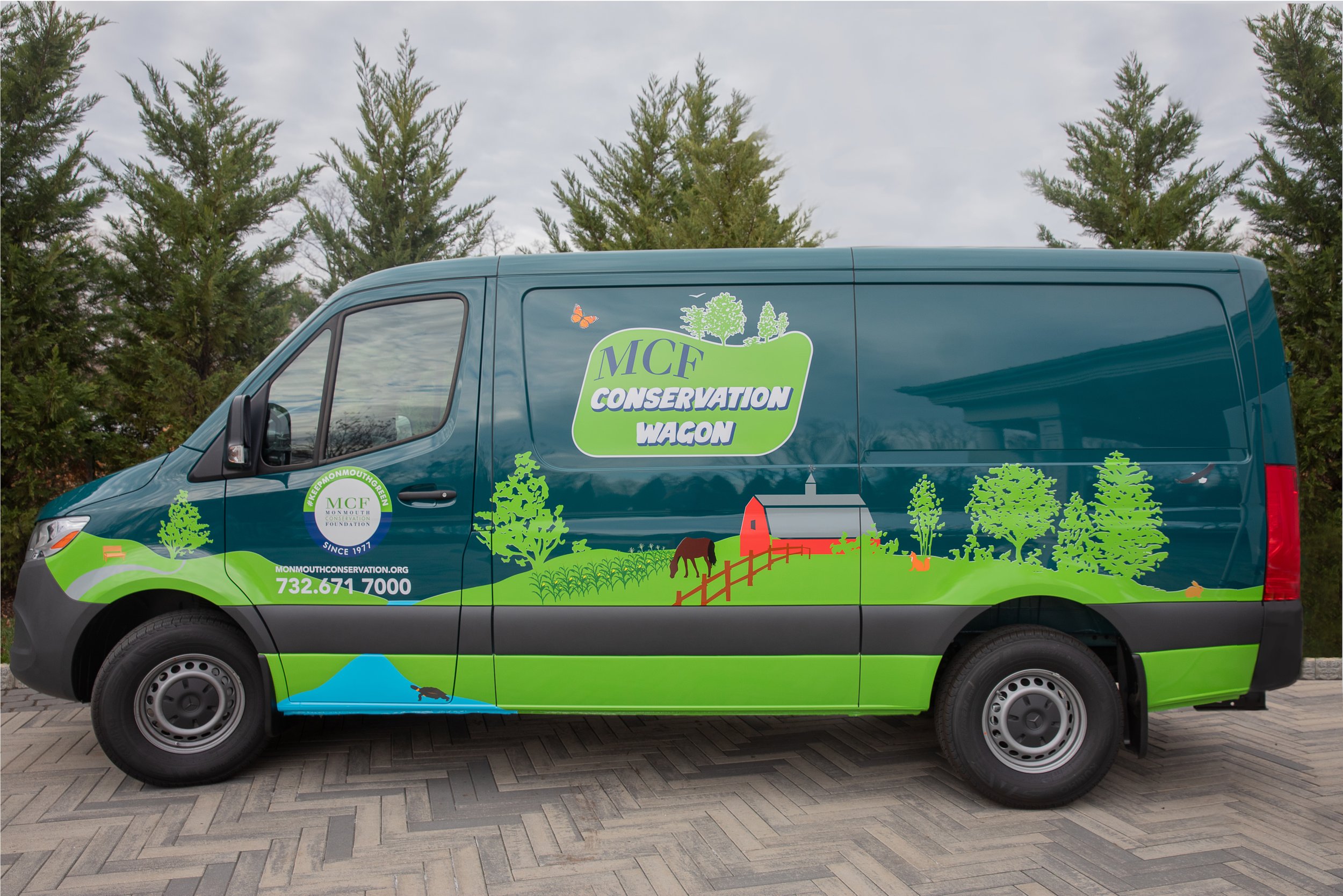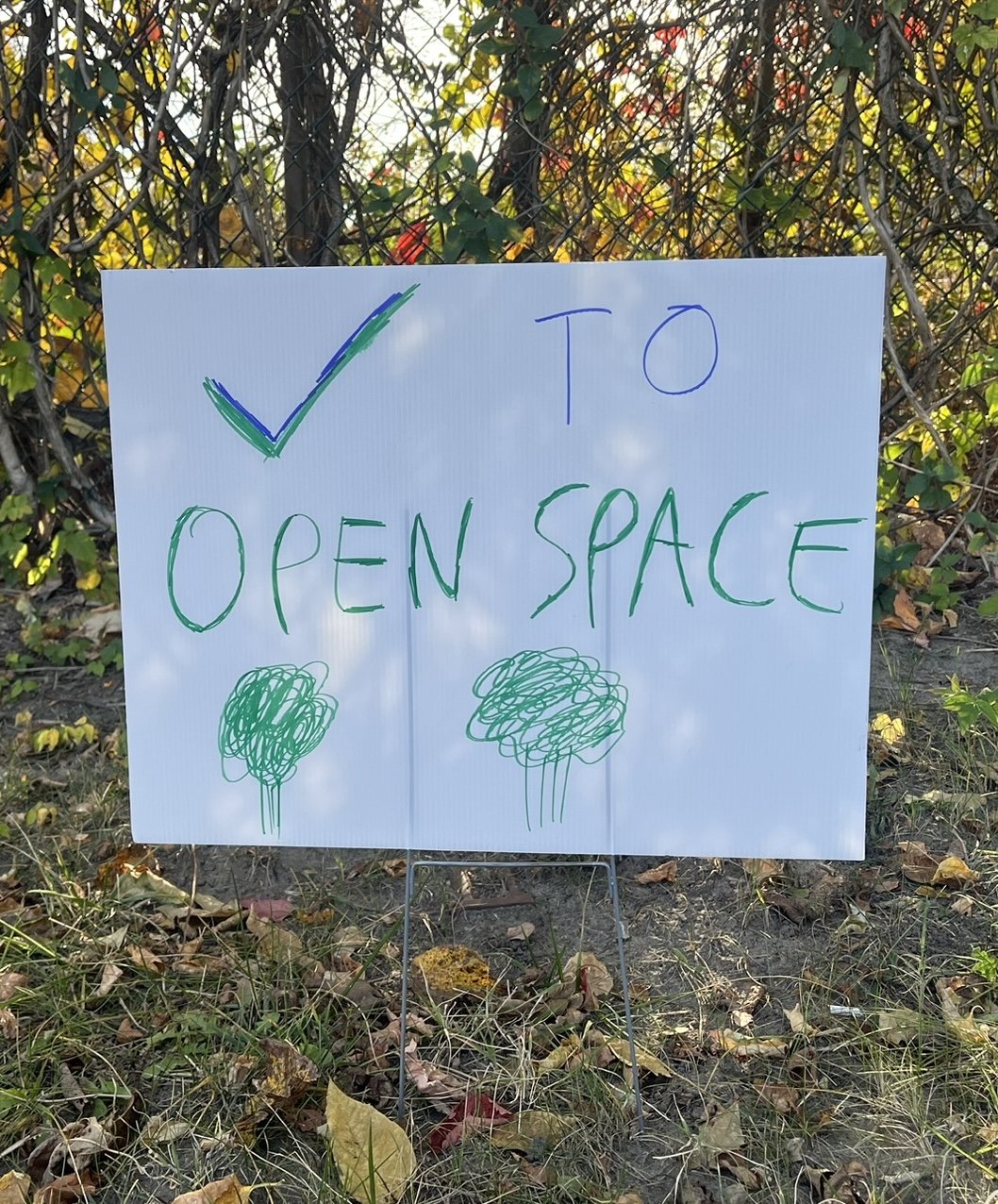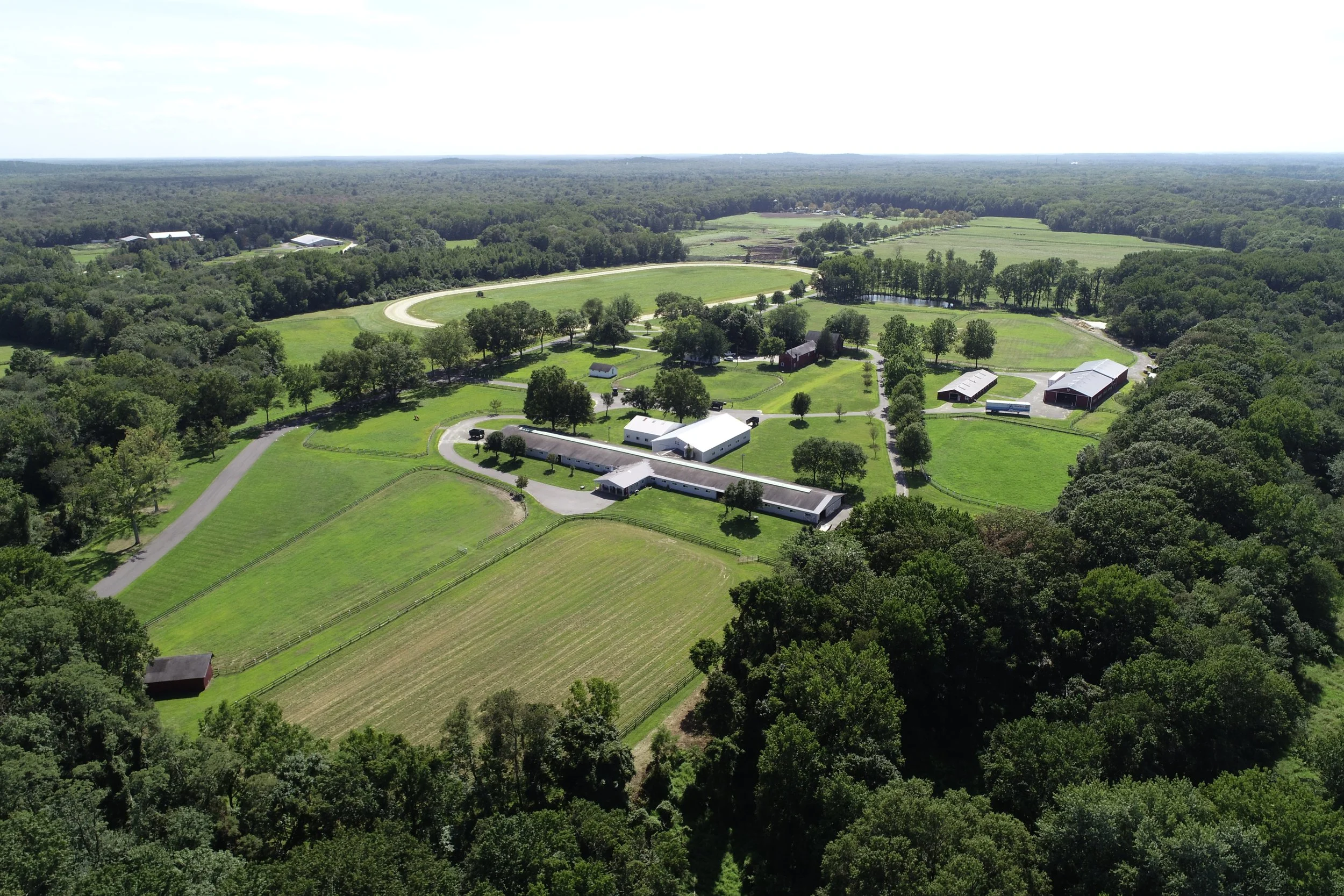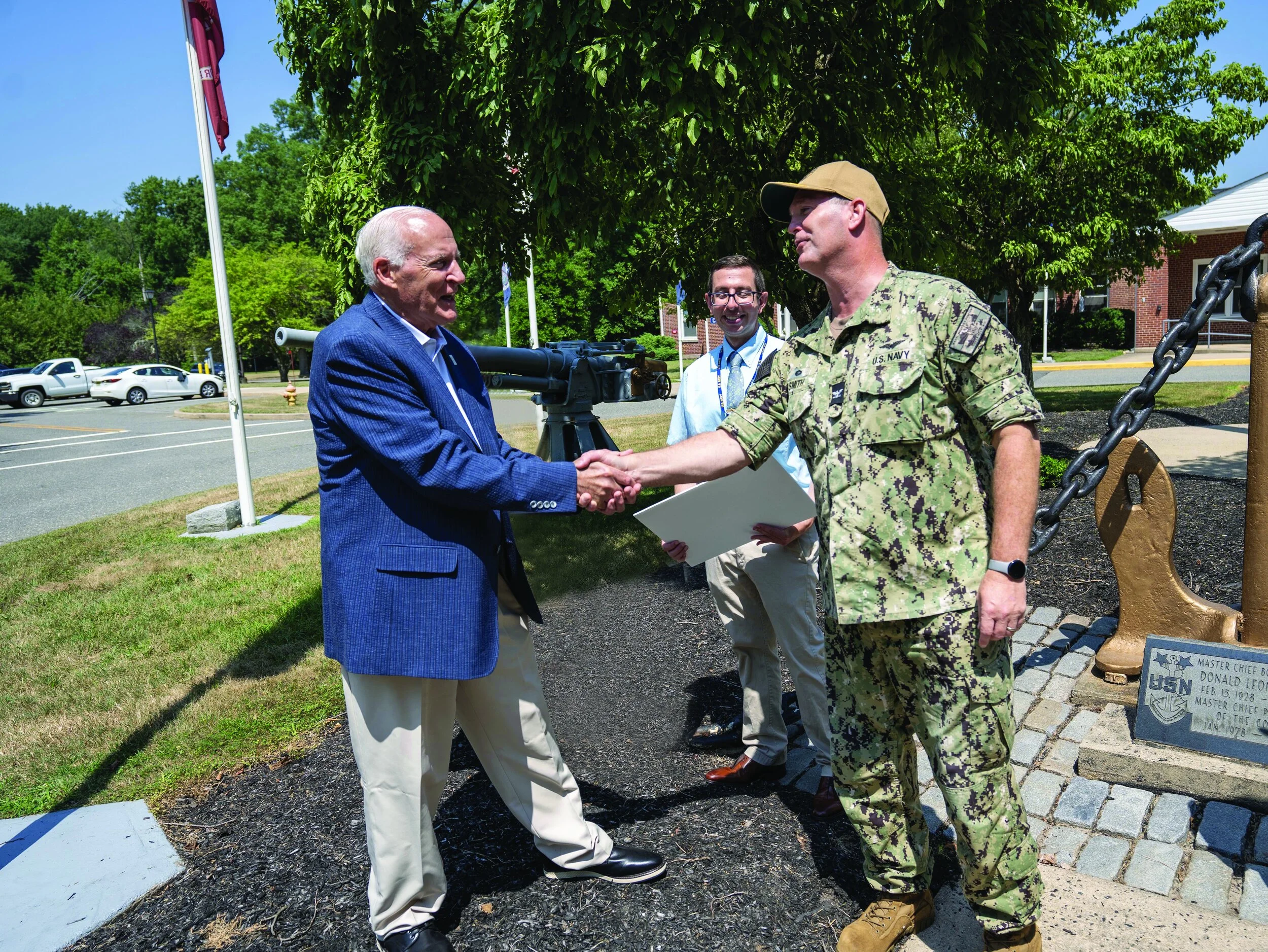Ray Catena Auto Group Donates Sprinter Van to Support New Science-Based Curriculum for Monmouth County Residents
Middletown, NJ (January 9, 2025) – Expanding on its successful Kids for Conservation Program, Monmouth Conservation Foundation (MCF), the county’s only nonprofit land trust, proudly announces the donation of the MCF Conservation Wagon by the Ray Catena Auto Group, Edison, N.J. for delivering environmental education programs throughout Monmouth County.
“Ray Catena has graciously funded the MCF Conservation Wagon – a Sprinter Cargo Van – allowing us to bring important conservation programming to students and residents of Monmouth County, with a particular emphasis on reaching our most underserved communities,” says MCF Executive Director William D. Kastning. “Topics will complement school lessons with activities that demonstrate the importance of green space and how each of us can create positive change and build hope for a sustainable future.”
Beginning in spring 2025, the new MCF Conservation Wagon will be available for community events, environmental fairs, and park and school visits throughout Monmouth County. Educational programming via the Conservation Wagon will align with MCF’s land preservation mission and include themes such as restoring biodiversity and ecosystem function, employing natural climate solutions, and taking individual action to create climate resiliency.
“We support organizations that focus on families and their well-being. This vehicle will support Monmouth Conservation Foundation’s environmental education initiative, which in turn benefits Monmouth County communities,” says Ray Catena.
Taking Education on the Road with the MCF Conservation Wagon
Prioritizing underserved communities, the MCF Conservation Wagon is envisioned to be a free service at qualifying schools, municipal parks, and community events, and, secondarily, available on a fee basis for arranged school visits, field trips, and private events. MCF is currently looking for sponsors and underwriters to help carry out this vision.
MCF is partnering with Monmouth University to create a lesson plan framework focused on the importance of green space, natural climate solutions, and individual action to create climate resiliency. MCF’s new Director of Educational Outreach, Doug Caum, will design public-friendly educational materials, based on these preK-12 lesson plans that meet New Jersey state standards.
To help deliver the educational programming, Caum will develop an intern and docent program of Conservation Wagon ambassadors. Students and families will ultimately participate in activities that teach actions they can take in their own home or backyard to promote the health of our environment, and in turn, improve the quality of our air and water and emphasize overall well-being and sustainability for the community – via the Conservation Wagon.
Caum will also deliver experiential learning programs for New Jersey educators as part of MCF’s work as a sub-grantee on the Expanding Access to Climate Change Education and the New Jersey Student Learning Standards (NJSLS) through Climate Change Learning Collaboratives (CCLC) grant awarded in 2024 to Monmouth University by the New Jersey Department of Education.
Future programming will involve interactive opportunities at and relating to MCF’s Scudder Preserve. MCF took ownership of the 90-acre natural site in Middletown, NJ, in April 2024, with plans to restore the natural habitat, enhance public access, and offer a living laboratory for educational activities.
To learn more, visit: www.monmouthconservation.org/wagon
# # #
About Monmouth Conservation Foundation
Founded in 1977, Monmouth Conservation Foundation (MCF) works to acquire and preserve open space and farmland and conserve natural habitats throughout Monmouth County in support of outdoor recreation, agriculture, clean water, and wildlife for long-term sustainability. An independent nonprofit organization that works with Monmouth County and its 53 municipalities, MCF’s vision is to lead conservation and education efforts to preserve and protect our natural environment, so all individuals and communities have access to and can benefit from open space and nature for generations to come. MCF received accreditation by the Land Trust Accreditation Commission in 2014 and has continued to maintain this status since. Accreditation is awarded to land trusts meeting the highest national standards for excellence and conservation permanence. MCF is one of 471 accredited land trusts out of 1,100 nationwide. For more information, visit www.monmouthconservation.org.

































